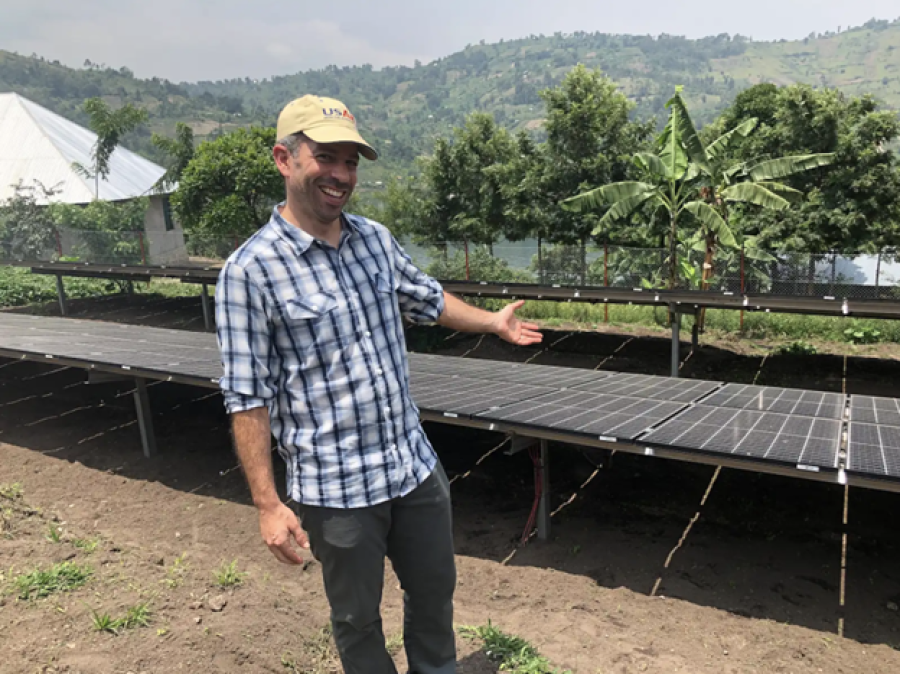The Gwich’in Steering Committee announced on October 25, 2005, the release of a new report outlining the implications of drilling in the Arctic National Wildlife Refuge (ANWR) as a violation of Gwich’in human rights under international law.
A Moral Choice for the United States—The Human Rights Implications for the Gwich’in of Drilling in the Artic National Wildlife Refuge was prepared by the public interest law firm Trustees for Alaska, on behalf of and under the auspices of the Episcopal Church, the Gwich’in Nation, and Professor Richard J. Wilson, Director of the International Human Rights Law Clinic at American University.
Oil drilling in the ANWR would jeopardize the culture of the Gwich’in, Legal Director of the Trustees for Alaska Rebecca Bernard said during a press conference about the report on the day of the report’s release. She emphasized that the coastal plains of Alaska, the planned drilling site, are critical to the Porcupine Caribou Herd, essential to the Gwich’in way of life.
Bernard said that the United States is obligated under several international bodies to protect the plains. The report cites the International Covenant on Civil and Political Rights, the Charter of the OAS, the Inter-American Commission on Human Rights, and the UN Human Rights Committee support the Gwich’in rights to culture, their own means of subsistence, health, and religion.
On October 19, 2005, the US Senate Energy Committee voted 13-9 to open the land for oil drilling as part of the energy panel’s ANWR drilling provision, which paved the way for subsequent passage of the bill through the House Resources and Senate Budget committee. The bill will now go before Congress in early November.
Oil drilling has been rolled into the budget bill rather than being categorized as an energy bill because it will allegedly serve as a way to raise funds, lessen United States’ dependence on international oil, and create jobs, according to the Washington Post. Language used in the budget bill has made it impossible for opponents to block the legislation with a filibuster.
According to Reuters, the US government estimates that the ANWR has 10.4 billion barrels of crude oil that could ease the recent oil shortage.
Professor Wilson said in the press conference that if the budget bill is passed, the Charter of Regulation from OAS will be violated. The Charter states that the government of each nation must "preserve and enrich the cultural heritage of the American peoples."
Several land and human rights cases including the Yanomami Indians vs. Brazil, Lubicon Lake in Canada, the Maya of Toledo District v. Belize, the Western Shoshone of Nevada, the Awas Tingni community vs. Nicaragua, and most recently, the Yakye Xi of Paraguay set the precedent for the Gwich’in, according to Wilson.
Luci Beach, a representative of the Gwich’in Steering Committee, said in the press conference that it is "unacceptable that another nation is allowed to be destroyed [for oil]." She stressed that the Gwich’in people still have a viable subsistence culture and use the land as part of their livelihood and live in villages on the caribou route. The Gwich’in believe that they have a responsibility to the Porcupine Caribou herd and it is their job to care for and protect them.
The Gwich’in Nation’s homeland spreads across northeastern Alaska and northwestern Canada, and includes the ANWR. Gwich’in have occupied this land for over 20,000 years and subsist primarily on hunting caribou. This land is sacred to the Gwich’in people who call it "the sacred place where life begins." The ANWR is not only the home of the Porcupine Caribou Herd that the Gwich’in people depend on, but is also an integral part of their social, economic, and cultural identities.
The Gwich’in Nation is currently reviewing options they have for filling an international complaint.
The Gwich’in Steering Committee is urging US citizens to immediately contact their Senators and Representatives asking them to vote against the budget bill that could open the Arctic Refuge to oil leasing and drilling.


